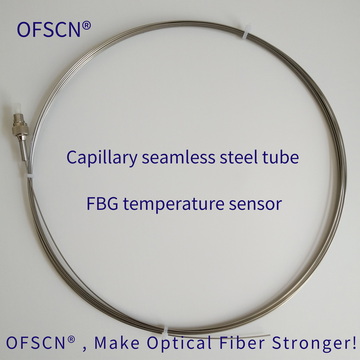Application of Fiber Bragg Grating Sensing Technology - Application of FBG Sensor - Application of FBG-Application of FBG Demodulator - Application of FBG Sensing in Industry
FBG Sensing Technology for Pipeline Monitoring in Oil and Gas Industry
Pipeline transportation is a crucial mode of transportation for oil and gas products. However, pipeline infrastructure faces several challenges, including corrosion, leakage, and external damage that may result in significant financial losses or catastrophic incidents. Effective monitoring of pipelines is therefore essential in ensuring the safety and integrity of the infrastructure. In this regard, fiber grating sensing technology provides a reliable and cost-effective solution for pipeline monitoring. In this article, we will discuss the problems that fiber grating sensing technology can solve, and how Beijing Dacheng Yongsheng Technology Co., Ltd.(short for DCYS ) can support pipeline monitoring in oil and gas industry.
Fiber Bragg Grating Sensing Principle:
Fiber Bragg gratings (FBGs) are periodic structures that are inscribed in the core of an optical fiber. These structures reflect a specific wavelength of light that is determined by the periodicity of the grating. When the grating is subjected to mechanical or thermal strain, the reflected wavelength changes in a predictable manner. By monitoring the reflected wavelength, changes in strain, temperature, and other parameters can be detected. FBG sensors can be used to monitor a wide range of parameters, including strain, stress, temperature, and vibration.
Click the link below for more details:
Challenges in Pipeline Monitoring in the Oil and Gas Industry:
Pipeline monitoring in the oil and gas industry faces several challenges, including corrosion, leakage, and external damage. These challenges are compounded by the harsh operating conditions, such as high temperatures, pressures, and corrosive environments, that pipelines are subjected to. Corrosion is a significant concern in pipeline infrastructure, which can lead to pipeline failure and environmental damage. Pipeline leakage, either due to corrosion or external damage, can result in the loss of product and environmental contamination. Effective monitoring of pipelines is therefore critical to detecting and addressing these issues before they become major problems.


What Problems Can be Solved by FBG Sensing Technology:
Fiber grating sensing technology provides a reliable and cost-effective solution for pipeline monitoring in the oil and gas industry. By measuring changes in physical parameters such as temperature, strain, and pressure, fiber grating sensors can detect and locate potential problems such as corrosion, leakage, and external damage in pipelines. Fiber grating sensors can also monitor the structural integrity of pipelines, detecting any deformation or bending that could lead to failure. Moreover, fiber grating sensors can operate in harsh environments, making them suitable for monitoring pipelines in the oil and gas industry.
Recommended fiber grating temperature, strain, stress, displacement, vibration, and shape sensors:
Fiber Bragg Grating Stress Sensor - FBG Stress Gauge - Bolt and Anchor Rod Stress Detection
Beijing Dacheng Yongsheng Technology Co., Ltd.:
Beijing Dacheng Yongsheng Technology Co., Ltd.(short for DCYS) is a professional manufacturer of fiber grating sensors, fiber grating demodulators and system software. Specializing in the production of various fiber grating sensors, including temperature, strain, stress, displacement, vibration, shape sensors, etc. DCYS also produces fiber grating demodulators, and can customize and develop related application software.
Recommended fiber grating demodulator:
Product Alias: Fiber Bragg Grating Interrogator, FBG Interrogator, FBG Sensor Interrogator, Fiber Optic Grating Interrogator, Fiber Bragg Grating Demodulator, FBG Demodulator, Fiber Optic Grating Demodulator
This product is produced by DCYS, and it is a high-speed high-frequency fiber Bragg grating demodulator(Interrogator). The fiber grating demodulator is compatible with various specifications and models of OFSCN® fiber bragg grating sensors (temperature, strain, stress FBG sensors, etc.). It features adjustable port density (4, 8, 16 channels) and high-speed high-refresh rate capabilities.
DCYS Supports Pipeline Monitoring in Oil and Gas Industry:
DCYS can help the oil and gas industry solve some problems in pipeline monitoring by providing reliable and cost-effective fiber grating sensing solutions.

Other Points Need to Be Clarified:
Fiber grating sensing technology offers a reliable and cost-effective solution for pipeline monitoring in the oil and gas industry. By measuring changes in physical parameters such as temperature, strain, and pressure, fiber grating sensors can detect and locate potential problems in pipelines, including corrosion, leakage, and external damage. Beijing Dacheng Yongsheng Technology Co., Ltd. is a leading provider of fiber grating sensors, and can help the oil and gas industry solve some problems in pipeline monitoring. With the use of fiber grating sensing technology, pipeline infrastructure in the oil and gas industry can be monitored effectively, ensuring the safety and integrity of the infrastructure.
